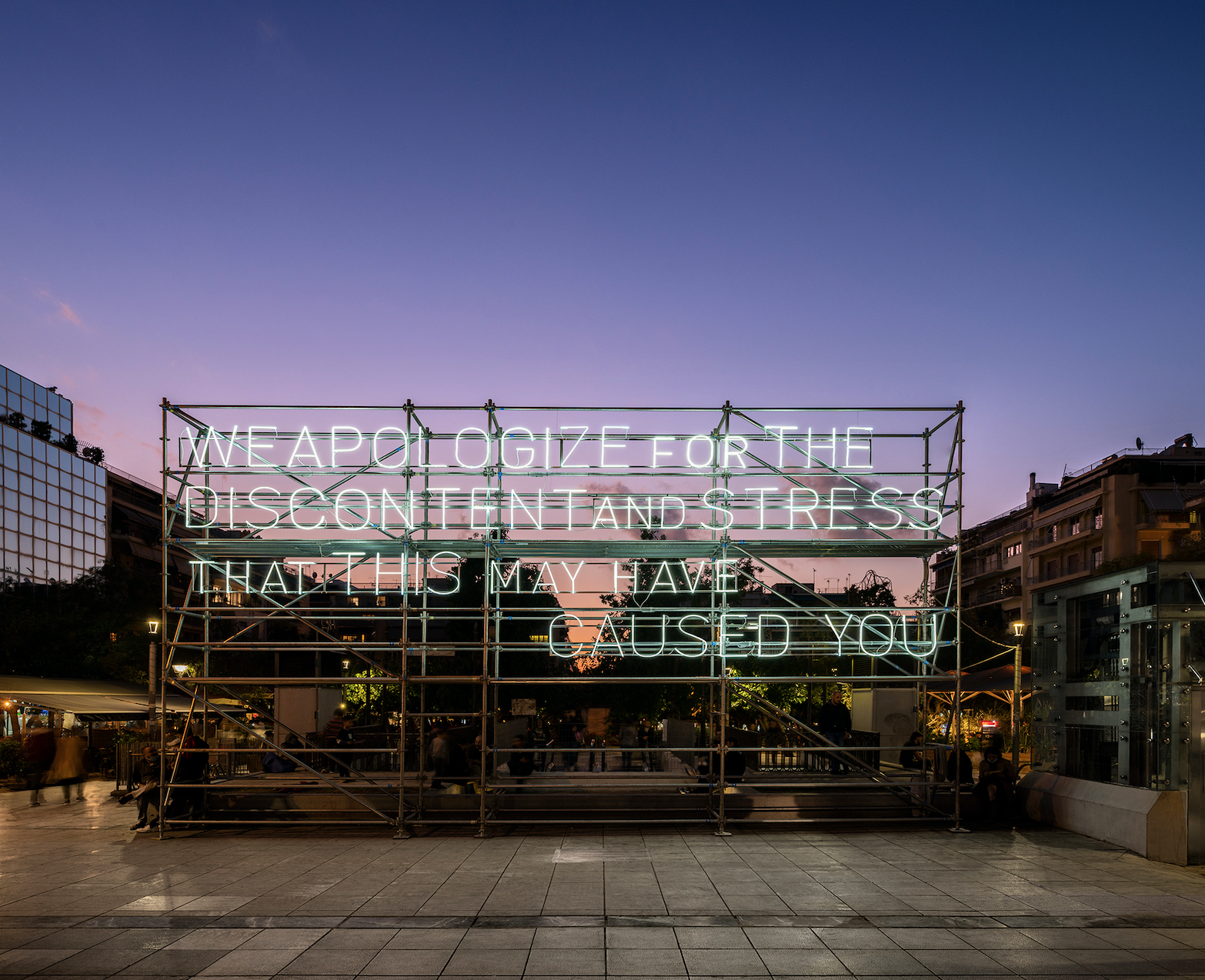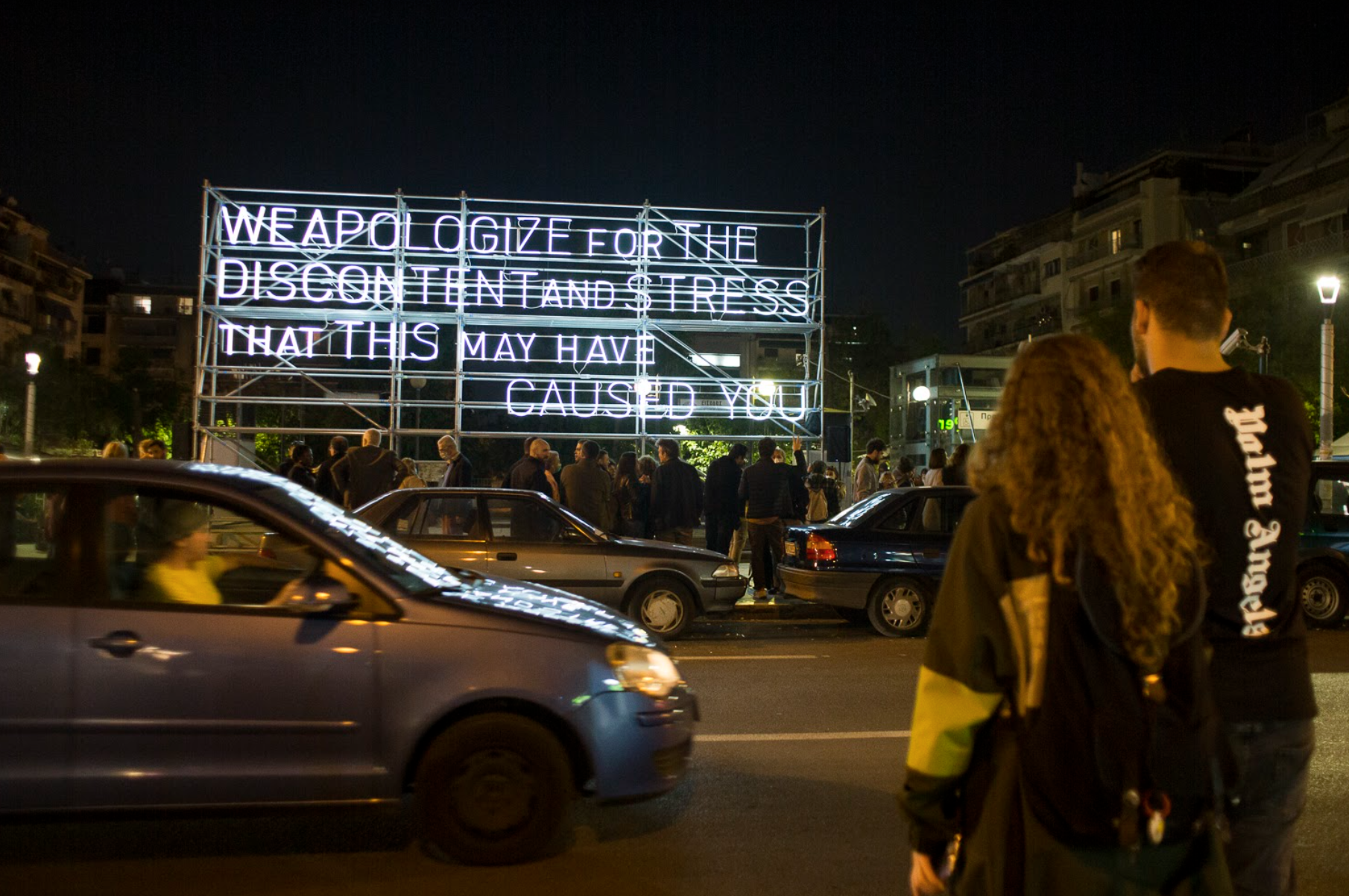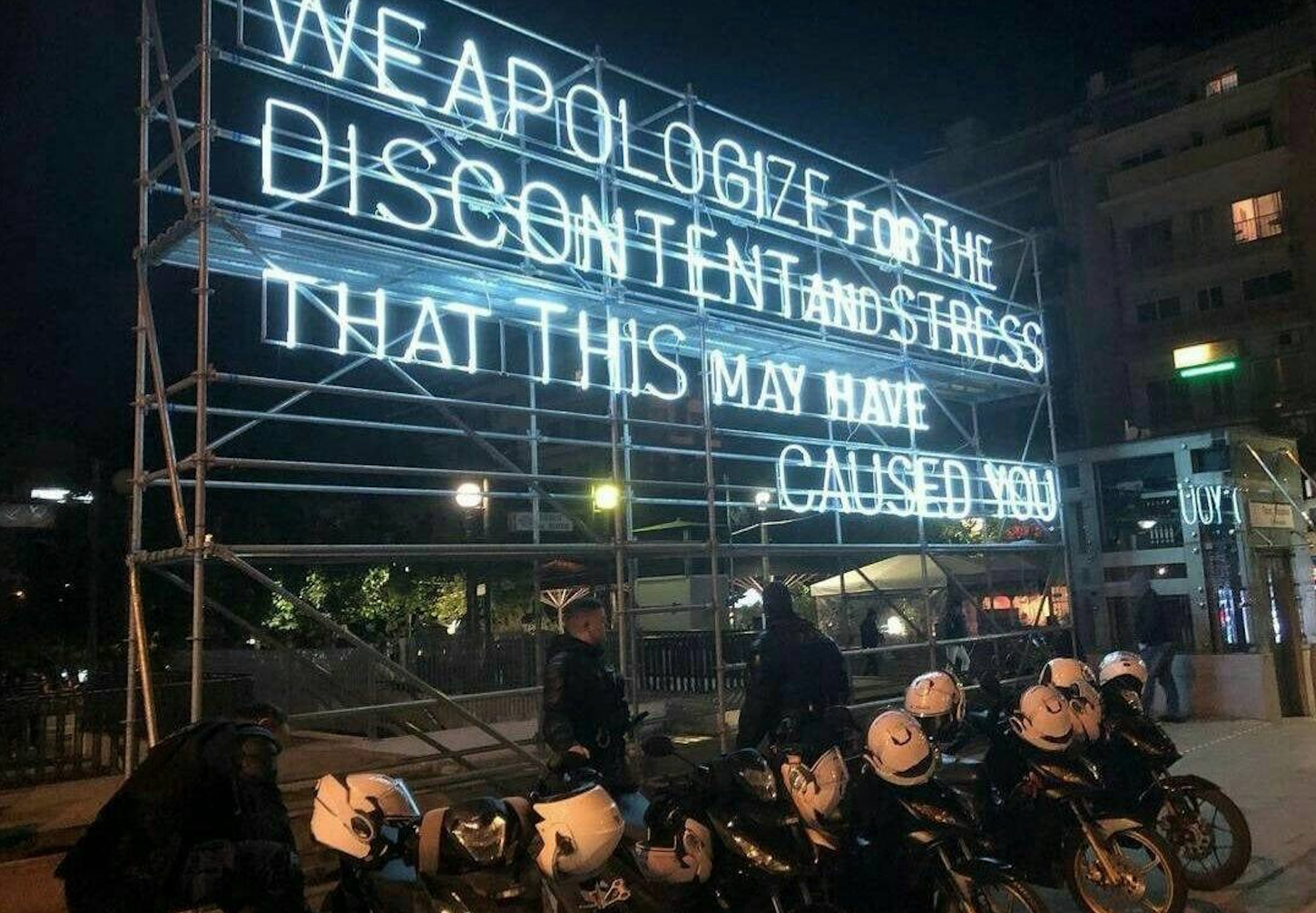Who is apologizing, and to whom? A large light installation on Victoria Square in Athens states: “We apologize for the discontent and stress that this may have caused you.” Who is included in—or excluded by—the ‘we’ and the ‘you’, respectively? What is ‘this’? Victoria is a heavily policed area, as it is home to many refugees, sex workers and substance users. It isn’t clear from the work itself if it’s apologizing to or for these populations, but the material consequence of the installation is an even heavier police presence in the area, resulting in increased harassment of the Square’s locals. The piece is co-commissioned by Counterpoints Arts, who focus on “arts, migration and cultural change,”and based on research made “in collaboration with old and new residents from the Victoria Square neighborhood”. On the official website for the artwork, a footnote reads: “Please accept our sincere apologies for any inconvenience that may arise from the presence of the installation in Victoria Square. We understand that even a small shift from our everyday itinerary and routine may be annoying…”. Brushing off increased policing as an “inconvenience” and a “small shift” demonstrates the disconnectedness of this supposedly socially engaged work of art, that evidently failed to recognize the threat that police violence poses to people within and beyond Victoria.
 “We Apologize” installation by Adrian Paci (2021), photo credit: Matteo Natalucci
“We Apologize” installation by Adrian Paci (2021), photo credit: Matteo Natalucci
During the installation’s unveiling, a solidarity group from the neighborhood handed out flyers addressing the work’s political discrepancies, emphasizing that they were not a part of this ‘we’, nor were they apologizing. The same week as this opening, a young person was murdered by the police in a suburb of Athens. Constantly, refugees, sex workers, and substance users are criminalized; exposed to state surveillance and police harassment.
As social engagement and social justice become buzzwords in the art world, it is necessary to question who benefits from this engagement and from this work in general. I ask myself, writing this article, is it worth bringing more attention to this installation? Who is going to benefit from that? I don’t want to encourage anyone to visit “We Apologize” but I also refuse to ignore the negative consequences of this particular artwork, which reveals endemic issues to socially engaged art in general. The artwork claims not to “take a specific stance,” but what does this mean when people’s lives are on the line? How is a work that contributes to an increase in policing in a context of police violence not taking a stance? Contemporary art should not refrain from engaging with politics and the general public, but question how and for whom it does so; who is included or excluded by the ‘we’.
 Opening of “We Apologize” installation by Adrian Paci (2021), photo credit: Nefeli Papaioannou
Opening of “We Apologize” installation by Adrian Paci (2021), photo credit: Nefeli Papaioannou
“We Apologize” by Adrian Paci (2021)
Commissioned by Counterpoints Arts and Victoria Square Project organizations, curated by Niovi Zarampouka-Chatzimanou, director of VSP and Almir Koldzic, director of Counterpoints Arts.
20th October-12th November 2021, Victoria Square, Athens
https://www.victoriasquareproject.gr/post/we-apologize-by-adrian-paci


